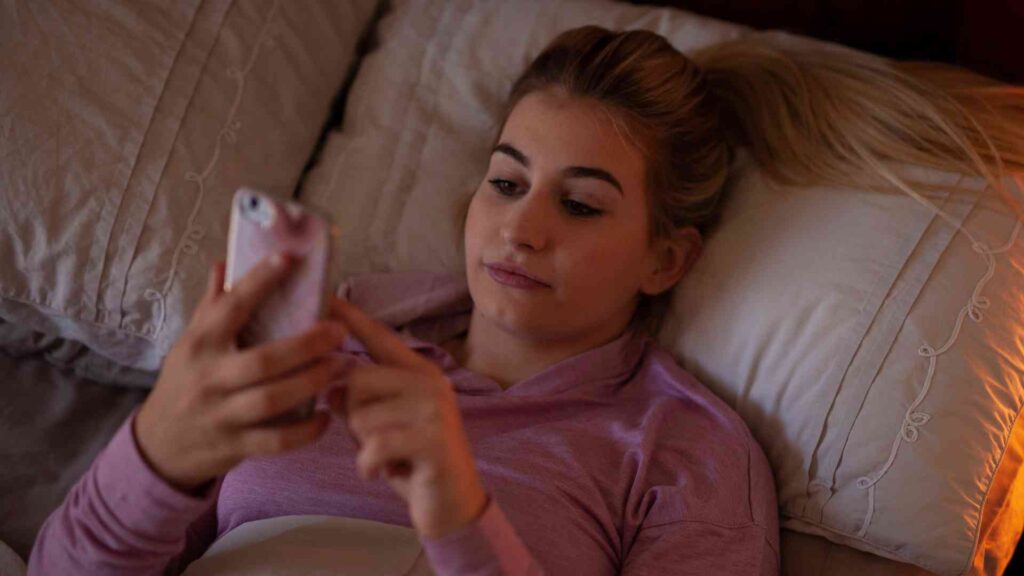Discover comprehensive information for all aspects of sexual health and find resources and guidance to empower your sexual well-being.
The pelvic floor muscles are the unsung heroes of our body’s core, providing support to…
Discover comprehensive information for all aspects of sexual health and find resources and guidance to empower your sexual well-being.
The pelvic floor muscles are the unsung heroes of our body’s core, providing support to…
Prostate health is a critical concern for men, especially as they age. The prostate gland…
Painful erections never indicate normalcy, and sometimes signal a medical emergency. Severe pain may necessitate…
Erectile dysfunction (ED) is a common condition that affects millions of men worldwide, causing distress…
Sleep-related painful erection (SRPE) is a rare condition where people get painful erections while they’re…
The underlying cause as well as the severity of pain determine the varied treatment approaches…
Commitment issues can often manifest in romantic relationships, work, and other personal or professional spheres.…
In the digital age, social media platforms have woven themselves into the fabric of daily life. Initially celebrated for connecting people across the globe, these platforms are now under scrutiny for their impact on mental health. The impact of social media on mental health
is complex, necessitating a deeper understanding to navigate its challenges effectively.
Table of Contents
ToggleRecently, people have incorporated social media into their daily activities, spending hours on platforms like Messenger, Instagram, Facebook, and other popular sites. In 2019, the worldwide user count for social media reached 3.484 billion. Undoubtedly, social media has become a crucial part of many individuals’ lives. While it offers many positive and enjoyable benefits, social media can also contribute to mental health problems.
Social media promised an era of unprecedented connection, offering opportunities to stay in touch with friends and family, meet new people, and join communities with shared interests.

However, this digital interaction often comes at the expense of real-life connections. The paradox lies in the increasing feelings of isolation and loneliness reported by heavy social media users. The platforms that were supposed to bring us closer together may actually be driving us apart.
Related: Loneliness: All You Need To Know
One of the most significant impacts of social media on mental health stems from the “highlight reel” effect. Users tend to share only the best aspects of their lives, creating an unrealistic portrayal of reality. This can lead to feelings of inadequacy and low self-esteem in others, who compare their everyday lives with these curated glimpses. The constant comparison can erode self-confidence and foster a sense of not measuring up to perceived standards of success and happiness.
Teenagers and young adults are particularly susceptible to the adverse effects of social media. During these formative years, peer approval is highly valued, and social media can amplify feelings of exclusion and inadequacy. The pressure to maintain a certain image online can also lead to obsessive behavior and anxiety, impacting sleep patterns and overall well-being.
The use of social media is associated with self-esteem and body image.
A Dutch study involving 881 young people revealed that positive feedback on the young person’s profile on the CU2 (See You Too) social networking site boosted their self-esteem and well-being, while negative feedback diminished their self-esteem and well-being.

In a randomized controlled trial involving university students, researchers assigned participants to one of three conditions: viewing or updating their own Facebook profile, looking into a mirror, or being in a control group. The study found that self-esteem peaked for students who viewed or updated their Facebook profile. This outcome links to the participants’ ability to selectively self-present by choosing their best photo or personal information for their Facebook profile.
Further research indicates that young people who frequently use Facebook tend to exhibit narcissistic tendencies, and social media promotes a ‘loner’ behavior among the youth.
Passive activity on social media, like reading posts, has a stronger association with depression than active use, such as making posts.
Related: What Causes Low Self-Esteem?
The anonymity and distance provided by social media platforms can lead to an increase in cyberbullying and harassment. Cyberbullying involves deliberately using digital media to share false, embarrassing, or hostile information about another person.
Unlike traditional bullying, cyberbullying can follow individuals into their homes, leaving them feeling unsafe and vulnerable. The psychological effects of this harassment can be devastating, leading to anxiety, depression, isolation and even suicidal thoughts.
The National Institutes of Health analyzed data from adolescents in 43 countries and, not surprisingly, found that victims of cyberbullying reported higher levels of depression.
In America, there have been many instances of suicides among young people attributed to cyberbullying. Similarly, in Australia, reports identified seven instances of suicides among young people related to cyberbullying during 2012–2013.
In today’s world, anxiety ranks as a fundamental mental health issue. People receive likes and comments on their uploaded photos and videos. In this era, everyone has become immune to the context of social media. Social media triggers anxiety in some teens due to the fear of missing out, leading them to regularly check and respond to all their friends’ messages.
Depression stands as one of the unintended consequences of excessive social media use. Studies show that individuals engaged with social media, games, texts, and mobile phones are more likely to suffer from depression.
In 2011, the term ‘Facebook depression’ emerged from an article that explored the impact of social media on young people. This paper referenced several studies to substantiate the claim that preteens and teens who dedicate considerable time to social media sites start to show classic symptoms of depression.
Related: Depression: All You Need To Know

Using social media and other interactive tech activities can mess with your sleep because they get your brain too excited and mess up your sense of time, unlike more chill activities like watching TV.
Five big studies showed that using social media too much at first could lead to bad sleep later on. Two of these studies even said social media use could cause sleep problems. In twenty-four different studies, they found a strong link between how much you use social media and how well you sleep.
Young people active on social media sites tend to engage more in risk-taking behavior, potentially jeopardizing their health. Moreno et al. analyzed 500 publicly viewable MySpace profiles and found that 54% of young people exhibited risky behaviors. In some instances, this online risk-taking can escalate into cyberbullying.
The design of social media platforms, with their endless feeds and notifications, encourages compulsive use. This can develop into a social media addiction, characterized by an overwhelming urge to constantly check platforms, even at the expense of real-life interactions and responsibilities. This addiction can lead to decreased productivity, strained relationships, and significant distress.

Despite its challenges, social media has the potential to positively impact mental health. Platforms can provide valuable support networks for individuals dealing with mental health issues. They offer a space to share experiences, find community, and access resources that might not be available offline. Furthermore, social media can be a powerful tool for raising awareness and reducing the stigma surrounding mental health.
To mitigate the negative impact of social media on mental health, it’s crucial to develop healthy usage habits. This includes setting time limits, curating a positive and supportive social media feed, and making time for offline activities and interactions.
It’s also important to practice critical thinking when engaging with content online, reminding oneself that social media presents a skewed view of reality.
The impact of social media on mental health is a double-edged sword, offering both opportunities for connection and challenges to well-being. Recognizing the potential pitfalls and taking proactive steps to use these platforms healthily can help individuals maintain their mental health in the digital age. As we continue to navigate this interconnected world, it’s vital to remember the importance of balance, mindfulness, and real-world connections.
References
Dr. Nishtha, a medical doctor holding both an MBBS and an MD in Biochemistry, possesses a profound passion for nutrition and wellness. Her personal journey, marked by significant struggles with physical and mental health, has endowed her with a unique empathy and insight into the challenges countless individuals face. Driven by her own experiences, she leverages her background to offer practical, evidence-backed guidance, empowering others on their paths to achieving holistic well-being. Dr. Nishtha truly believes in the interconnectedness of the mind and body. She emphasizes the significance of understanding this connection as a crucial stride toward attaining balance and happiness in life.

